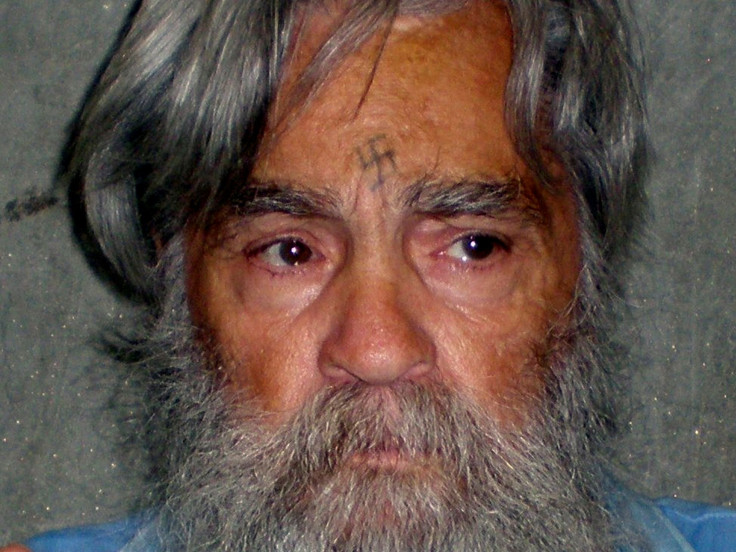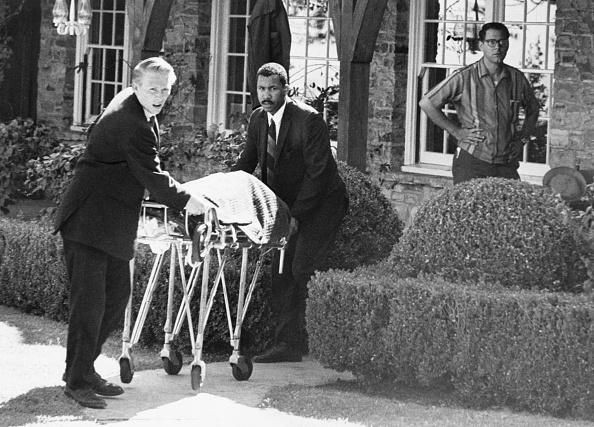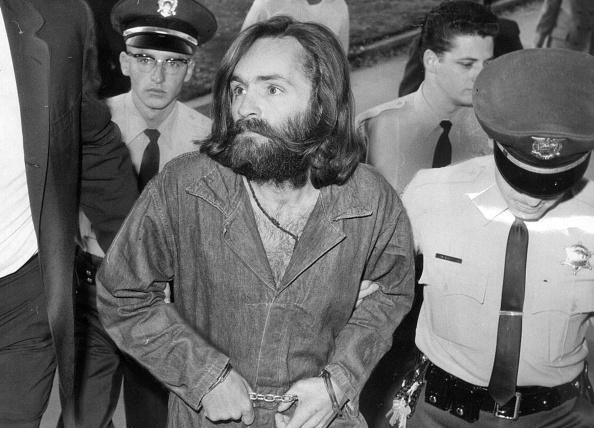Was Charles Manson A Psychopath Or Sociopath? Sharon Tate Murderer, Cult Leader, Dies At 83
Was Charles Manson, who died aged 83, a psychopath or a sociopath? The murder mastermind left a legacy of horror. Members of his “family” cult killed seven people on two nights in August 1969, including actress Sharon Tate, eight months pregnant, who was stabbed to death while she begged for her baby’s life. He also left unanswered questions. The most intriguing mystery about Manson: What kind of pathology could explain his charisma and cold-bloodedness?
Read: 10 Signs That You May Be A Psychopath
Many cult leaders are narcissists — people with enormous egos who constantly crave admiration while showing no empathy toward others. They have a profoundly inflated sense of self-importance and entitlement. Jim Jones, the American head of the Jonestown cult that became infamous when hundreds of members simultaneously drank Kool-Aid laced with cyanide and died, had this personality disorder. Those deaths included children and people forced to drink the poison at gunpoint.

But Manson’s pathology seems to go deeper than narcissism. He showed signs throughout his life of antisocial personality disorder, a condition in the diagnostic manual of psychiatry that is marked by a lack of regard for the feelings of other people, and for what is right and wrong. “People with antisocial personality disorder tend to antagonize, manipulate or treat others harshly or with callous indifference,” the Mayo Clinic explains. “They show no guilt or remorse for their behavior.” They are arrogant, known to lie and can often seem charming, which is how they manipulate people, and will often take part in aggressive, impulsive, irresponsible or risky behavior.
Psychopathy and sociopathy are extreme forms of antisocial personality disorder: “The more egregious, harmful, or dangerous behavior patterns are referred to as sociopathic or psychopathic,” Psychology Today explains. The terms are often used interchangeably, and these two types of people certainly have a lot in common — they engage in high-risk behavior for the thrill, usually have criminal records, are generally impervious to treatment and, because they mimic normal behavior and deceive the people in their lives, no one around them may suspect they are deranged.
Read: How to Spot a Psychopath
But the two categories are not the same, with the main difference being their backgrounds: psychopathic traits are more innate, while sociopaths blossom under certain social and environmental conditions, such as an abusive upbringing. Psychology Today also notes that “unlike their sociopathic counterparts, psychopathic criminals are cool, calm, and meticulous” — when they commit crimes, they plan every detail and are often much more difficult to catch. The serial killer Jeffrey Dahmer, for example, was found to have dismembered and eaten his victims, and confessed to killing 17 people from 1978 through 1991.


Live Science estimates that about a quarter of the male federal prison population is comprised of psychopaths, so was Manson just another inmate in that group, or was he a sociopath? There’s evidence to argue either way.
According to biographer Jeff Guinn, who wrote “Manson: The Life and Times of Charles Manson,” the murderer showed violent tendencies even as a young boy. “Beginning in first grade, Charlie would recruit gullible classmates, mostly girls, to attack other students that he didn’t like,” Guinn wrote for Biography. “Afterward, he’d swear to teachers that his kid followers were just doing what they wanted — he couldn’t be held responsible for their actions. Because no one thought a 6-year-old could be capable of such Machiavellian manipulation, Charlie usually got off scot-free while his disciples were punished.” His first cousin Jo Ann also recounted a story in which 7-year-old Manson, living with her family and “fascinated by guns and, especially, knives or any other sharp implements,” threatened her with a sickle he had found.
Read: Will Manson Follower Leslie Van Houten Get Out Of Prison?
Some would say Manson was a product of a troubled childhood. He claimed his mother, Kathleen Maddox, was a teenage prostitute, but Guinn says that was a lie. She did spend some time in prison during his youth, when he went to live with his cousin.
Antisocial personality disorders do show themselves at young ages, the Mayo Clinic says, with signs like aggression toward people and animals, theft, deceitfulness and destruction of property. Those behaviors may dissipate over time, but it might not be what is appears: “It's not clear whether this decrease is a result of aging or an increased awareness of the consequences of antisocial behavior.” Antisocial personality disorder is a lifelong condition.
Read: 7 Infamous Serial Killers
Apart from the aggression Guinn noted, a young Manson showed the other early signs of the disorder, with a record of theft and other crimes and a history of deceitfulness. He was in and out of prison and Biography says that while behind bars he was considered dangerous “before he discovered the benefits of being a ‘model prisoner.’” Probation reports called him unpredictable — volatility is a symptom of psychopathy and sociopathy — and “constantly striving for status and securing some kind of love.”

As an adult, he abused drugs, which is common among people with antisocial personality disorder, and experienced delusions about an impending armageddon. (It's been speculated that he ordered the Tate-LaBianca murders in the hopes of sparking a race war.) He appeared to be all over the spectrum: Psychopaths are meticulous, and he allegedly criticized his followers for being sloppy after some of their murders; meanwhile sociopaths are said to treat their inner circle well, something Manson by some accounts did with his followers. They became addicted to his approval as much as to the drugs he provided.
In the half-century since the Tate-LaBianca murder spree, Manson showed “no signs of rehabilitation” and accepted no responsibility. We may never know if he was born vicious — but we know he died that way.
© Copyright IBTimes 2025. All rights reserved.





















